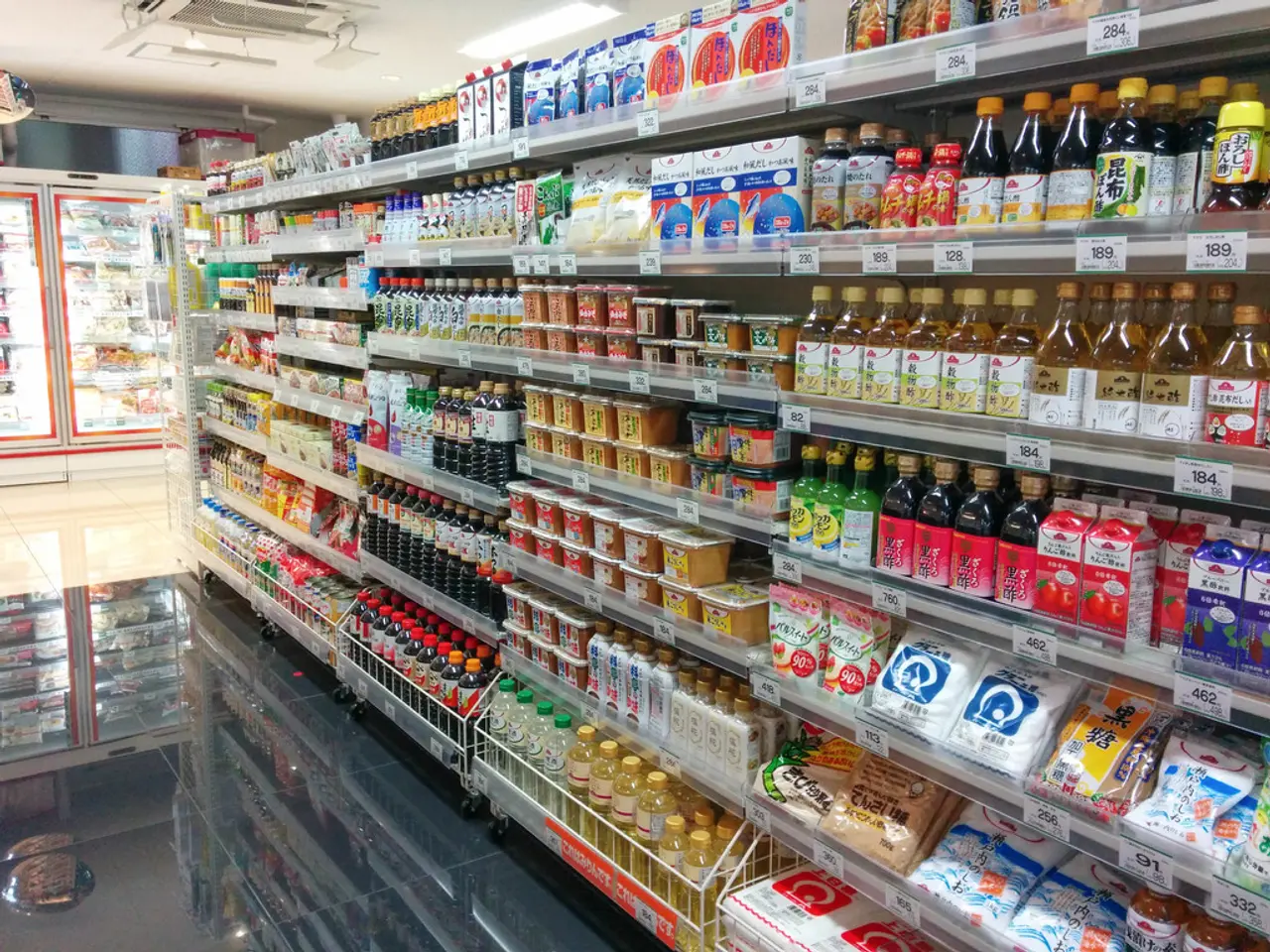Private equity firm hands over $2 million in relief funds to ex-employees of Art Van Furniture
In the dynamic world of retail, private equity firms have become a significant player, often stepping in during or after bankruptcy proceedings. This involvement can lead to both store closures and the preservation of retail operations, with complex effects on employment.
Recent cases provide insight into this relationship. J.C. Penney, after filing for Chapter 11 bankruptcy in 2020, saw its real estate assets, including 119 stores, sold for $947 million to Onyx Partners. The stores continue to operate under long-term leases, indicating that private equity ownership of retail real estate can provide liquidity but does not necessarily end store operations immediately. However, J.C. Penney has downsized significantly, from over 1,000 stores pre-bankruptcy to 650 stores currently, implying substantial store closures and job reductions over time [1][3].
On the other hand, Claire's, a tween accessories retailer, filed for Chapter 11 bankruptcy in early August 2025. Private equity firm Ames Watson acquired Claire’s North American operations for $140 million, paused liquidation of at least 700 underperforming stores, and committed to maintaining a significant retail footprint and paying wages for a large number of employees. This suggests that private equity involvement can aim at restructuring and preserving some jobs and stores, even amidst bankruptcy-driven closures [2][4][5].
The overall impact of private equity involvement in retail bankruptcies is a double-edged process. It can lead to job losses from reduced store footprints due to store closures, as seen in the case of J.C. Penney. However, it can also result in potential job preservation through reorganized operations, as demonstrated by the case of Claire’s.
The hardship faced by retail workers is evident in the story of Shirley Smith, a former Art Van sales manager. The closure of Art Van left her without health insurance, a paycheck, and severance pay in the middle of a global pandemic [6]. Art Van employees are pushing for legislation sponsored by Democratic Sen. Elizabeth Warren to increase liabilities for private equity firms, curb fees and dividends, and prioritize worker pay in bankruptcies [7].
A study from December traced 542,000 lost jobs and 18,000 closed stores to private equity-owned retailers [8]. As of July 2020, about a third of retailers owned or previously owned by private equity firms since 2002 had filed for bankruptcy [9].
In response to the hardship faced by former Art Van employees, private equity firm Thomas H. Lee Partners added $1 million to a hardship fund, providing relief for eligible employees [10]. The information was reported in a press release from United for Respect and previously by Bloomberg [11].
The combination of high debt loads from leveraged buyouts and rapid changes in the retail world has been fatal for many private equity-owned retailers. As the retail landscape continues to evolve, it is crucial to understand the complex relationship between private equity firms and retail bankruptcies, and the impact on employment.
References:
- J.C. Penney Bankruptcy: What It Means for Shoppers and Employees
- Claire's Files for Bankruptcy, Pauses Liquidation of Hundreds of Stores
- J.C. Penney Store Count Shrinks as Bankrupt Retailer Sells Real Estate Assets
- Claire's Bankruptcy: What It Means for the Tween Brand
- Claire's Bankruptcy: What It Means for the Tween Brand
- Former Art Van Sales Manager Speaks Out About Closure
- Art Van Workers Push for Legislation Amid Bankruptcy
- Private Equity's Role in Shrinking America's Retail Landscape
- One-Third of Retailers Owned by Private Equity Have Filed for Bankruptcy
- Thomas H. Lee Partners Adds $1 Million to Art Van Hardship Fund
- Art Van Workers Push for Legislation Amid Bankruptcy
- The AI-generated report reveals that private equity firms, like Onyx Partners, have acquired distressed retailers during financial hardships, such as J.C. Penney, leading to store closures and job losses.
- In contrast, private equity involvement can also aim at restructuring and preserving jobs, as demonstrated by Ames Watson's acquisition of Claire's, which prevented the liquidation of at least 700 underperforming stores.
- The pandemic has intensified the hardship faced by retail workers, leaving them without essential benefits like health insurance, as witnessed by Shirley Smith, a former Art Van sales manager.
- The evolution of the financial landscape has been detrimental for many retailers, leading to bankruptcies, and the question of responsibility arises regarding the impact of private equity firms on jobs, lifestyle, and even public health in times of crisis.




